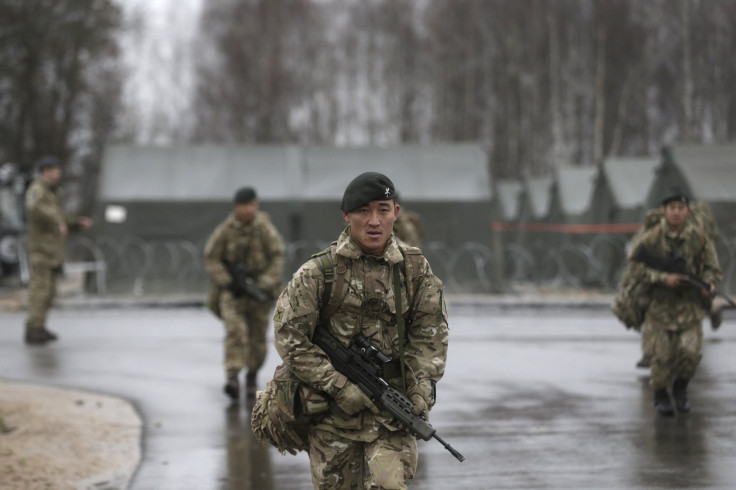Amid ISIS And Russian Threat, British Army Deploys To Jordan, Middle East For War Games

The British Army has deployed 1,600 troops and hundreds of military vehicles to the Syria-neighboring country of Jordan to take part in war games designed to prove U.K. forces are capable of sending as many as 30,000 troops into combat in the event of a major conflict. The deployment of the soldiers is one of the biggest by the British army since it ended combat operations in Iraq and Afghanistan in 2011 and 2015, respectively, and comes as the Islamic State group continues to operate inside Syria and Iraq.
However, British military sources speaking to the Telegraph newspaper Sunday evening said that the exercise isn't aimed at the Syria- and Iraq-based terrorist group, aka ISIS.
"This isn't a counter-ISIL exercise," an anonymous British military source told the Telegraph, using yet another name for the organization. "If anything, this is much more about us being prepared to join the U.S. in Ukraine than it is in Syria." The source neglected to explain why troops are undertaking training in desert conditions rather than those seen in Europe. "This is not the sort of kind of force you expect to roll into Aleppo to take on a bunch of jihadists," the source said.
Among troops and tanks, major medical and logistical teams are expected to replicate a smaller version of what would be a major military expeditionary force in the southwestern desert of Jordan.
If successful, the war games will be an important boost to military commanders and political leaders in the U.K. after years of defense cuts that saw military spending dip below 2 percent gross domestic product. Now-retired former head of the U.S. Army Gen. Raymond Odierno expressed “serious” concerns last year that the British military, often America’s main ally in combat, was shrinking its forces to a point where it wouldn’t be effective in an overseas conflict like those fought in the Middle East over the past 15 years.
It's also been suggested over the past few years that the Royal Navy, which currently has no functioning aircraft carriers, wouldn't be able to defend the Falkland Islands near the southern tip of Argentina, where British and Argentinean forces fought each other in the early 80s. The HMS Queen Elizabeth and the HMS Prince of Wales, both British aircraft carriers, are due to be commissioned in 2017 and 2020, respectively.
© Copyright IBTimes 2024. All rights reserved.












